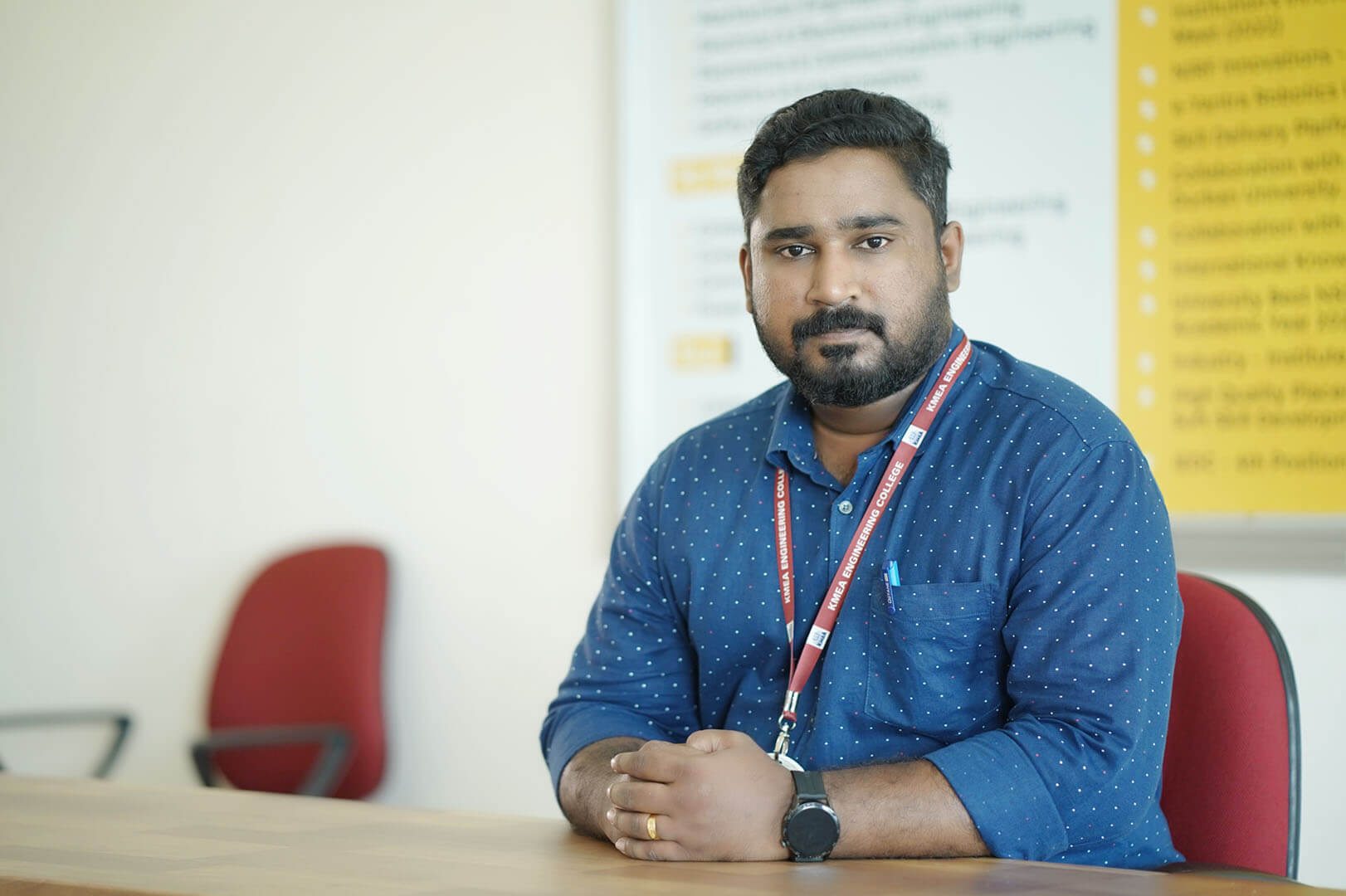Safety & Fire Engineering
HOD's Message
” It is with great pleasure that I welcome you to the Safety and Fire Engineering Department at our esteemed engineering college. Our department is committed to fostering a culture of safety, innovation, and excellence.
Safety and Fire Engineering is a critical field that plays a pivotal role in ensuring the well-being of individuals and safeguarding infrastructure against potential hazards. At our department, we are committed to fostering a culture of excellence in education, research, and practical application to address the evolving challenges in safety and fire management.
Our dedicated faculty members bring a wealth of expertise and experience, guiding students through a comprehensive curriculum designed to equip them with the necessary knowledge and skills to excel in this dynamic field. Through a blend of theoretical learning and hands-on training, our students graduate with a deep understanding of fire dynamics, risk assessment, emergency response planning, and regulatory compliance.
Furthermore, our department is actively engaged in cutting-edge research endeavors aimed at advancing the boundaries of safety and fire engineering. By collaborating with industry partners and governmental agencies, we strive to develop innovative solutions that enhance safety protocols, mitigate risks, and contribute to the greater good of society.
Whether you are a prospective student considering joining our program, a current student embarking on your educational journey, or a professional seeking to further your expertise, we invite you to explore the myriad opportunities available within our department.
I encourage you to take full advantage of the resources, support, and mentorship available to you as part of our vibrant academic community. Together, let us embark on a rewarding journey towards creating a safer and more resilient future. ”
To be a globally recognized center of excellence in safety, fire prevention, and emergency management education, research, and innovation and dedicated to the upliftment of the deprived socio-economic sections of the society through effective teaching learning process.
- To produce resourceful, competent, graduates with a range of skills and experience relevant to modern industry and underpinning knowledge for practicing professionals in the field of Fire Safety engineering.
- To develop skills in communication, independent study, team working, problem solving, management and critical thinking which will motivate graduates for higher education and to create a society of highly educated professionals.
- To enable the graduates to apply their knowledge, understanding and skills to realistic situations and to produce socially committed engineers.
- To encourage students for advancing in the field of safety and fire engineering by integrating the latest technologies, developing novel methodologies, and contributing valuable insights through rigorous research.
- PO1 - Engineering knowledge: Apply the knowledge of mathematics, science, engineering fundamentals and an engineering specialization to the solution of complex engineering problems.
- PO2 - Problem analysis: Identify, formulate, review research literature, and analyze complex engineering problems reaching substantiated conclusions using first principles of mathematics, natural sciences, and engineering sciences.
- PO3 - Design/development of solutions: Design solutions for complex engineering problems and design system components or processes that meet the specified needs with appropriate consideration for the public health and safety, and the cultural, societal, and environmental considerations.
- PO4 - Conduct Investigations of complex problems: Use research-based knowledge and research methods including design of experiments, analysis, and interpretation of data, and synthesis of the information to provide valid conclusions.
- PO5 - Modern tool usage: Create, select, and apply appropriate techniques, resources, and modern engineering and IT tools including prediction and modeling to complex engineering activities with an understanding of the limitations.
- PO6 - The engineer and society: Apply reasoning informed by the contextual knowledge to assess societal, health, safety, legal and cultural issues and the consequent responsibilities relevant to the professional engineering practice.
- PO7 - Environment and sustainability: Understand the impact of the professional engineering solutions in societal and environmental contexts, and demonstrate the knowledge of, and need for sustainable development.
- PO8 - Ethics: Apply ethical principles and commit to professional ethics and responsibilities and norms of the engineering practice.
- PO9 - Individual and team work: Function effectively as an individual, and as a member or leader in diverse teams, and in multidisciplinary settings.
- PO10 - Communication: Communicate effectively on complex engineering activities with the engineering community and with society at large, such as being able to comprehend and write effective reports and design documentation, make effective presentations, and give and receive clear instructions.
- PO11 - Project management and finance: Demonstrate knowledge and understanding of the engineering and management principles and apply these to one’s own work, as a member and leader in a team, to manage projects and in multidisciplinary environments.
- PO12 - Life-long learning: Recognize the need for, and have the preparation and ability to engage in independent and life-long learning in the broadest context of technological change.
- PSO-1: Demonstrate a strong foundation in the principles of safety and fire engineering, including hazard analysis, risk assessment, and fire dynamics.
- PSO-2: Apply critical thinking and problem-solving skills to assess and mitigate safety risks and fire hazards in various settings, such as industrial, residential, and commercial environments.
- PSO-3: Demonstrate a commitment to ethical conduct and social responsibility by adhering to codes and standards while considering environmental and societal impacts.
- PEO 1: Graduates will create a positive safety culture in their working environment.
- PEO 2: Graduates will improve the knowledge and professional skills and/or pursue higher education.
- PEO 3: Graduates will acquire the ability to communicate effectively while working within a team.
- PEO 4: Graduates will demonstrate high regard for human rights, respect values in diverse cultures, and have concern for society and environment.



